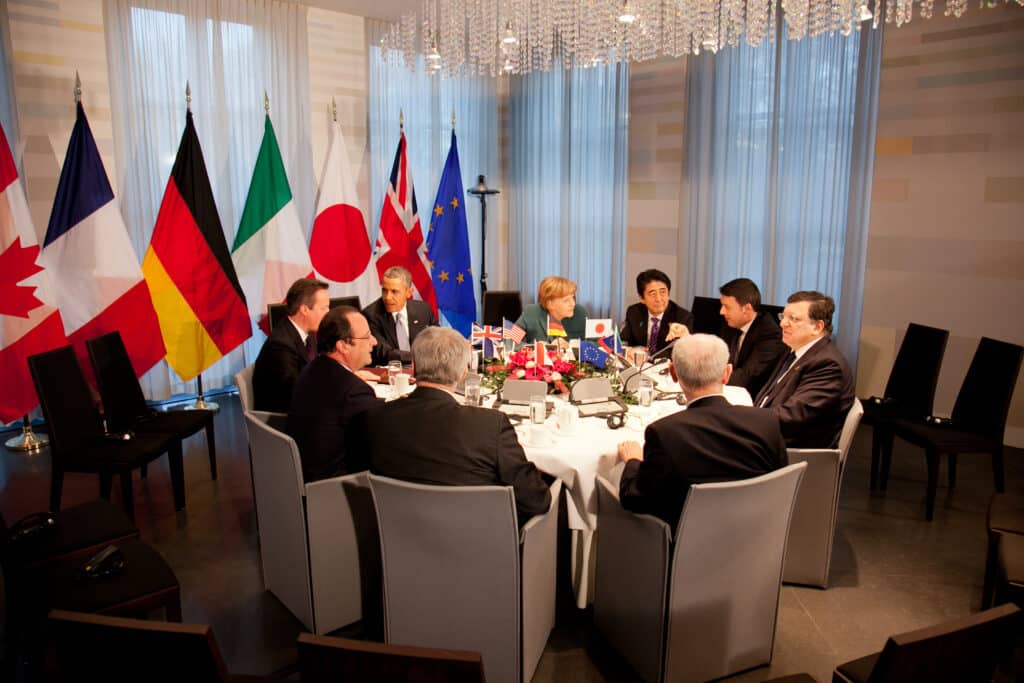COURSE DESCRIPTION
This advanced course provides a comprehensive exploration of international relations (IR), blending theoretical foundations, historical contexts, and critical analyses of global politics. Drawing from a diverse set of textbooks, students will examine core IR concepts, key thinkers, and non-Eurocentric perspectives on international systems, while critiquing dominant ideologies such as liberal hegemony. The curriculum covers the evolution of IR from pre-modern eras across regions like East Asia, the Islamic world, and pre-Columbian America, to contemporary issues including global health crises, environmental challenges, and cybersecurity. Through case studies of enduring conflicts (e.g., Arab-Israeli disputes) and emerging dilemmas, the course emphasizes realism’s contrast with idealism, the origins of war and peace, and the exercise of power in a multipolar world. By integrating biographical insights into fifty influential thinkers—from classical realists to modern philosophers like Habermas and Rawls—students will gain tools to untangle complex global changes affecting security, economic well-being, rights, freedoms, and the environment.
Course Objectives
- Introduce students to the essential theories, concepts, and historical developments in international relations, with a focus on non-European perspectives to challenge Eurocentric narratives.
- Explore the contributions of key thinkers in IR, including their philosophical underpinnings and applications to real-world scenarios.
- Critically analyze the failures and implications of liberal foreign policies, such as U.S. hegemony post-Cold War, through a realist lens.
- Apply IR frameworks to contemporary cases, fostering an understanding of conflict origins, issue development, resolution pathways, and global cooperation in areas like pandemics and environmental governance.
Course Learning Outcomes
Upon successful completion of this course, students will be able to:
- Identify and articulate major IR theories (e.g., realism, liberalism) and explain their evolution using historical examples from diverse global regions.
- Evaluate the ideas of at least fifty key thinkers in IR, demonstrating how their works influence current debates on power, peace, and international systems.
- Critically assess the “great delusion” of liberal dreams in foreign policy, contrasting them with international realities and predicting outcomes in hegemonic pursuits.
- Analyze real-world cases in IR, such as cyber-security threats or global health emergencies, by tracing their origins, development, and potential resolutions while incorporating non-European viewpoints.
COURSE CMS SPECIFICS
Credit value: 3-6 (US standard) | 6-12 (ECTS standard)
Indicative duration (full-time): 4-10 weeks
Indicative duration (part-time): 5-12 weeks
Certificate: Yes
COURSE METHODOLOGY
This course is based on standard EUCLID methodology. Students may refer to the following resources:
Academic Guidelines (HQ version)
Academic Guidelines (most recent version, even if unofficial)
Student Orientation Guidelines (most recent version, even if unofficial)
Zotero instructions for EUCLID students
Grammarly instructions for EUCLID students
REQUIRED TEXTS AND MATERIAL
Course material is provided in the form of embedded videos, audio MP3s, and/or downloadable PDFs.
- Brown, Chris. Understanding International Relations. 5th edition. Bloomsbury Academic, 2019.
- Griffiths, Martin, Steven C. Roach, and M. Scott Solomon. Fifty Key Thinkers in International Relations. 2nd edition. Routledge, 2008.
- Hastedt, Glenn P., Donna L. Lybecker, and Vaughn P. Shannon. Cases in International Relations: Pathways to Conflict and Cooperation. CQ Press, 2014.
- Mearsheimer, John J. The Great Delusion: Liberal Dreams and International Realities. Yale University Press, 2018.
- Mingst, Karen A., and Heather Elko McKibben. Essentials of International Relations. W. W. Norton & Company, 2022.
- Ringmar, Erik. History of International Relations: A Non-European Perspective. Cognition Switch, n.d.
ASSESSMENT METHODS
Written Assignments, Response Papers and Major Paper: 40% (must pass)
Quiz: 10% (must pass)
Final Exam: 50% (must pass)
COURSE SYLLABUS | ACCESS TO 7 PERIODS


